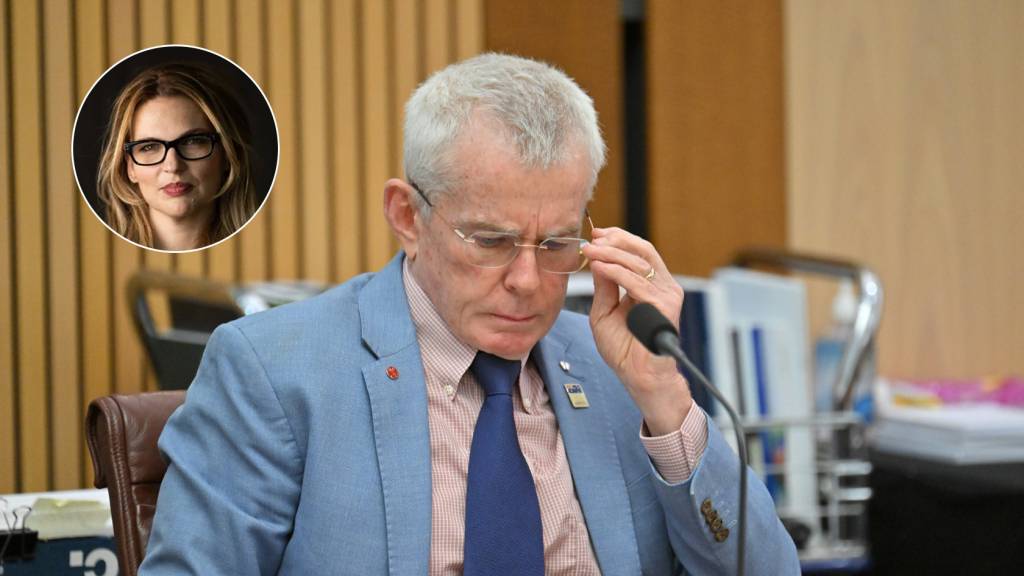It’s Senate estimates time, which means it is time to look at government expenditure and really hold those bastards to account!
Lol.
Senate committees have existed in some form since Federation, but Senate estimates hearings, as we know them, are only as old as the Beatles’ Let It Be.
Related Article Block Placeholder
Article ID: 1223911
The committee system is designed to examine all areas of government expenditure and decision making, but like all things political, it has been largely reduced to a forum to carry out political point scoring and games of “protect the minister” — also known as “it’s insulting you would even ask that, senator”.
It’s one of the rare times where senators can question senior public servants, who spend weeks being prepped and prepared by their departments on how to not answer questions, and what inflection to use on “I’ll have to take that on notice.”
Independent. Irreverent. In your inbox
Get the headlines they don’t want you to read. Sign up to Crikey’s free newsletters for fearless reporting, sharp analysis, and a touch of chaos
By continuing, you agree to our Terms & Conditions and Privacy Policy.
But still, we persist.
A lot of the time, you can guess what is going to come up. Senators and their staff have spent months asking journalists, advocates, and the like which issues are not getting enough attention, or what questions haven’t been answered in stories and meetings (you can usually tell who by how big a particular media outlet/group runs a particularly niche line of questioning).
You should want your senators to be across issues that aren’t all making headlines, so this practice can be helpful. Senators who have been cut out of the Senate committee selection process have the right to attend any estimates hearing they’d like and ask questions (which is usually how you find the Malcolm Roberts’ of the world interrogating the head of the Bureau of Meteorology about Facebook conspiracies), but it also means that some of the issues the government has been attempting to bury get a small outing.
You’ll also see some parliamentarians issue a call to their communities about things they have noticed, which can broaden the field.
It’s the questions the government of the day won’t touch that usually bring about the biggest headlines, and understandably so. Modern politics has made an art form of the non-answer, but that cynicism has also created a culture of apathy, where voters switch off, having already guessed they’ll be learning nothing.
Which is why the questions matter. Because the more you know about what they won’t answer, the more you know what sort of government you’ve got.
Related Article Block Placeholder
Article ID: 1223686
The portfolios of finance and public administration, legal and constitutional affairs, environment and communications, rural regional affairs, and transport will be grilled today and tomorrow. On Thursday and Friday, education and employment, foreign affairs, defence and trade, economics, and community affairs get a go. You can see a full breakdown of the portfolios that will be scrutinised this week here.
Crikey has compiled a short list of the questions that could be asked at estimates, but probably won’t be (and feel free to add yours below — we know the politicians read this, so you never know):
So it’s a genocide, right? We’re across that now?
Given the failures, potential for another robodebt, and countless warnings, why is the mutual obligations system still running?
Department of Health secretary Blair Comley, you said earlier this year that Health Minister Mark Butler commissioned, consulted on or published more than 70 reviews during the last parliamentary term, and you want “more doing, less reviewing” from the minister. How many of these reviews have been implemented in full?
How many in part?
How many reviews have been commissioned already this term?
How much doing have you seen so far?
What part of the decision to approve the North West Shelf gas extension on Friday, September 12, aligns with the Climate Risk Assessment plan released on Monday, September 15?
Science tells us that to have any chance of securing a climate that allows us to improve productivity and deliver the homes, jobs, clean energy, and economic prosperity Australia needs, the world needs to phase out of fossil fuels. But instead of phasing out, this government continues to expand coal and gas. Will the EPBC reforms make it impossible for new gas or coal to be approved? If not, what is the point of it?
Related Article Block Placeholder
Article ID: 1223426
Will the government intervene to fix the significant governance issues at the Australian National University, after it was revealed ANU made a $90 million profit last year, while claiming it made a $142 million loss, seemingly to justify controversial staff and course cuts?
Santos Ltd has not paid company tax for 10 years from 2013-14 to 2023-24 despite a total income of $46.7 billion over that time and announcing that it made an underlying profit of US$1.2 billion in 2024 and US$1.423 billion in 2023. Why are we still OK with this?
Why has the government set a limit on emissions reduction by 2035 of 70%?
(Supplementaries) Why not set a minimum target, rather than a range with a ceiling of 70%? Is the government intending to limit emissions reduction so as not to cut emissions by 70%?
In this current financial year, the richest 10% of Australians are set to receive around $21 billion in superannuation tax concessions. Given the government enshrined in the Superannuation Objective Act 2024 that the objective of superannuation is “to preserve savings to deliver income for a dignified retirement, alongside government support, in an equitable and sustainable way”, can you explain how giving $21 billion in tax breaks to the richest 10% is equitable or sustainable, especially given such retirees would never have been eligible for the age pension?
Speaking to American generals, the president of the United States suggested that US cities should be used as training grounds for the US military. Is that an example of the “shared values” the deputy prime minister spoke of when he justified the AUKUS agreement by saying, “we share values, we stand in support of the maintenance of the rules-based order”?
Is it true that under AUKUS, the United States could deliver no submarines and still not be in breach of the agreement?
Does the government consider Defence Housing Australia a success? If so, has the government explored broadening the scope to provide housing for other public service workers across Australia?
Related Article Block Placeholder
Article ID: 1222957
Did the government model how much the expanded 5% deposit policy would increase house prices before it announced it? Has it modelled it since?
The OECD considers the fuel tax credit an industry subsidy. Why does the government think the mining sector needs a nearly $5 billion subsidy, given it is our most profitable industry?
Does the government agree with the RBA’s idea that to suppress inflation, thousands more Australians need to lose their jobs?
ESafety commissioner, the government has used your department as the excuse for its freedom of information changes, because one year you got 600 FOI requests and it took a few months to process them. You are a $145 million outfit. Is it true you were laid low by 600 Twitter users sending a form email? Web forms are an Internet technology going back to at least the 90s. If a web form can bring the eSafety Commission to its knees, what hope do we have against social media and AI?
What questions would you like to hear asked at Senate estimates?
We want to hear from you. Write to us at letters@crikey.com.au to be published in Crikey. Please include your full name. We reserve the right to edit for length and clarity.





